Today, as we honor the military men and women who have paid the ultimate sacrifice on the altar of freedom for our country, I honor one veteran who has led his family on a triumphant journey through the music industry and the battle against multiple sclerosis. I was privileged to interview both Alan and David Osmond – father and son duo of the famous Osmond clan about their inspirational story where both men are triumphing over this debilitating chronic illness. Following is an excerpt of that interview from my book, A Cast of Caregivers – Celebrity Stories to Help You Prepare to Care.
The Show Goes On for the Osmonds
They say lightning never strikes twice in the same place yet this is exactly what happened to Alan Osmond and his son David Osmond of the famous entertainment family. This lightning came in two forms: great musical and performing talent as well as a gift for songwriting but also something less glamorous: a diagnosis of the autoimmune disease multiple sclerosis (MS).
Growing up Osmond means you know how to be at the pinnacle of the entertainment world –you sing, you dance and no matter what the show must go on. This was no problem for David Osmond, one of eight sons born to Alan, the oldest of the famous Osmond Brothers who shot to fame along with Donny, Merrill, Wayne and Jay in the 1960s-70s (Marie and Jimmy came later). As a torchbearer for the Osmond dynasty, David, age 32, has a successful solo career, still performs as the lead singer for the Osmonds – Second Generation, is hosting a new TV music competition reality series and participated in the eighth season of American Idol.
But, imagine if one day you woke up and found you could not walk, you could not hold a guitar, you could not sing because the pain in your chest and paralysis in your body reached from your toes to your diaphragm making it hard to breathe. This was what David Osmond faced in 2005 when he was diagnosed with multiple sclerosis (MS) and went from a promising entertainment career into a wheelchair while still in his 20s. Remarkably, it was the same diagnosis his father, Alan, had been given almost 20 years earlier when he was in his late 30s. What makes this story so inspiring is that for the Osmond family, whose longevity in show business is legendary, both Alan and David are not only living with MS today, they are actually thriving.
Multiple sclerosis, which affects 2.5 million people worldwide, is an autoimmune disease that attacks the central nervous system and for which there is no cure. Essentially, scars and lesions cause interference with the transmission of signals to the brain and spinal cord that then cause the unpredictable and often debilitating symptoms that MS patients experience such as numbness, tingling and searing pain in the extremities, periods of partial or full blindness, loss of sensory function such as taste or smell and even full paralysis.
While researchers feel there may be genetic predictors for MS (the National Multiple Sclerosis Society states that siblings or children of those with MS have a 1 in 40 risk of also having MS), there is no clear connection that one generation passes it to another. What Alan did pass to his son David is a “can do” rather than a “can’t do” attitude towards living with MS.
“When I originally received the diagnosis, I had tested positive for West Nile Virus but some of the symptoms did not match up so they tested for MS and found I had the relapsing/remitting form of this disease which my doctors believe may have been dormant in my system but was triggered by the virus,” says David. “I was in complete denial – I had grown up watching my dad battle MS and my symptoms were not really the same so I just could not believe it.”
There are four variations on the aggressiveness and progression of MS disease, Alan’s was the primary progressive type, a diagnosis only 15 percent of all MS patients receive. With primary progressive there are no flare-ups or periods of remission such as with David’s type of MS – which means for Alan it is supposed to be a slow degeneration of the body’s functions.
Originally, David’s devastation took on the typical reaction people have when faced with a difficult diagnosis: “Why me?” He relates how one day while in a wheelchair he watched his brother playing on the floor with his kids and wondered to himself, “Will I ever have that?” You can hear the emotion in his voice as he continues, “I’m almost embarrassed to admit that is how I felt because when I looked from my brother and nieces and nephews to my dad and realized, here is this man who has lived with this disease for 20 years and he has never complained, I realized life can go on and you can find ways around this disease just like my dad did.”
“I have a motto I live by – you have to be TUFF,” says Alan. “It stands for: Target what you need to do; Understand everything you can about the challenge in front of you; Focus on how to live with or beat that challenge; Fight, Fight, Fight – you have to have the drive and desire to keep living and keep fighting for yourself and those around you.”
Osmond father and son tackled MS the same way they approach the music business – all out or as Alan says “I may have MS but MS does not have me.”
“I was given a cortisone shot when I was first diagnosed in 1987,” says Alan, “and it just about killed me. It was right then that I decided there has to be a better way and I started investigating alternative medicine that would not have the side effects of traditional drugs.”
Family and Faith
Both Osmonds have found ways to deal with MS and overcome many obstacles and the dire prognosis of their physicians. David was able to get up and out of his wheelchair with powerful steroid shots that helped him walk down the aisle with his beautiful bride, Valerie, a few years ago. “I proposed to her from my wheelchair and she said, ‘Yes!’ so being able to walk down the aisle with her was something I just knew I had to do.” He has not been back in his wheelchair since and the couple now has two beautiful daughters, ages one and three.
Father and son embrace all-natural homeopathic remedies and David takes up to 50 all-natural supplements a day while Alan adds a daily dose of 2,000-5,000 IUs of Vitamin D; they believe in using essential oils, such as Frankincense, for aromatherapy and they follow a healthy diet based on gluten-free (wheat-based products) and casein-free (milk protein) foods with limited meat and other proteins. The strict adherence to an all-natural diet which Alan blends into most of his meals has helped manage his MS symptoms and helped him lose 30 pounds. Alan also enjoys hydro-exercise – the buoyancy of the water not only takes the pressure off of sometimes painful joints but also helps with balance while practicing movements. In addition, both Alan and David avoid stimulants such as cigarettes, coffee or caffeinated sodas, which is part of their Church of Latter Day Saints faith, and they believe in the power of prayer and positive thinking. If there is an Osmond prescription for helping to tame the symptoms of MS it is simply “family and faith.”
In fact, both Alan and David credit their wives, Suzanne and Valerie respectively, with the kind of unconditional love so essential in a spouse when someone is facing a chronic illness. According to the National Health Institute Survey conducted by the Centers for Disease Control, 75 percent of marriages among those couples dealing with a chronic illness end in divorce – 50 percent higher than the overall national divorce rate.
“There is a good side to every challenge in life,” says David. “Sometimes dealing with something like multiple sclerosis can make your marriage better, I know both my wife and I have learned more patience with each other through this journey and I absolutely would not be where I am at today in conquering MS without her.”
Alan agrees that it was Suzanne who helped him seek the alternative remedies which have him defying all the odds with his prognosis. All doctor predictions and prognosis pointed to Alan being in a wheelchair by now but instead Alan travels with Suzanne and is walking only occasionally using a leg brace or cart when he has to walk long distances. Alan says, “It is not just one person who gets MS, it is the whole family.” That is one of the reasons why Alan created his Web site, TheFamily, which addresses family issues around chronic illness and other life lessons.
Alan and David admit that they have learned a lot from each other through this journey with MS. David says his dad has taught him to never feel sorry for himself, to embrace both the blessings and burdens in life with a positive attitude and to help as many people as you can with whatever you can. Alan believes David has taught him what patience and perseverance are all about.
“I know it’s crazy to say, but it is actually a great time to have MS,” says David. When his father was diagnosed more than 25 years ago, there were not a lot of options but today David, who sits on the board of the Nancy Davis Foundation for MS and attends her annual conferences for the foundation’s Center Without Walls says, “There are eight drugs on the market and several more being approved by the FDA as we speak. The numerous choices we now have to attack this disease that is attacking our bodies – especially with the education about alternative, all-natural choices that I have made for my lifestyle – are encouraging. I truly think we are going to lick this disease and the great research minds agree – they believe MS is one of the chronic illnesses that I may see a cure for in my lifetime.” (See more with David and other celebrities from the Nancy Davis Foundation for MS Race to Erase MS Event).
When I asked both Alan and David what are their private passions – both responded almost simultaneously with “spending time with family.” While David enjoys sports like skiing even though his balance and agility are not what they used to be because of the MS, and Alan loves to continually learn new things and brainstorm on ideas – like teaching himself html code so he can build web sites – both men are happiest when surrounded by family.
As we wind up the interview, David is eager to get back to playing Legos and watching Disney movies with his two young daughters – a scene he was not sure he would have just a few years ago. He says he wears a ring on his right hand that is engraved with ETTE – Endure To The End. He says he has had the ring since before his MS diagnosis, so today he adds, “Endure to the end …of the day.” With his girls calling for daddy from the other room, we say our “so longs” and I wish Alan happy birthday (June 22) and both men a happy Father’s Day. I laugh as I later see a tweet from David – it says simply, “Going to make tshirts for my girls that say ‘Having MS gets on my dad’s nerves.’”
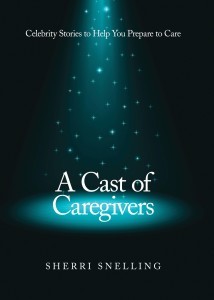 Find more inspirational celebrity caregiving stories and helpful information and resources in Sherri Snelling’s book, A Cast of Caregivers – Celebrity Stories to Help You Prepare to Care.
Find more inspirational celebrity caregiving stories and helpful information and resources in Sherri Snelling’s book, A Cast of Caregivers – Celebrity Stories to Help You Prepare to Care.
©2015 Sherri Snelling

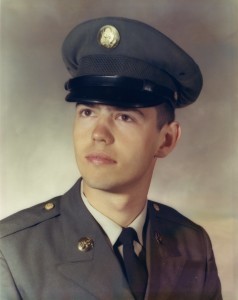
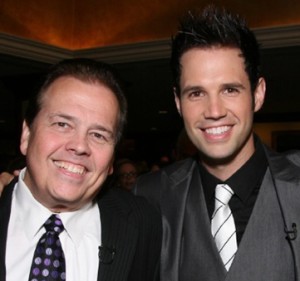
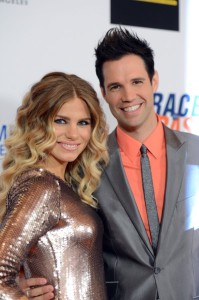
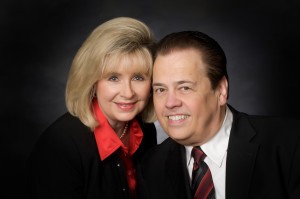
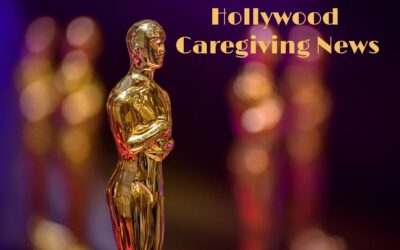
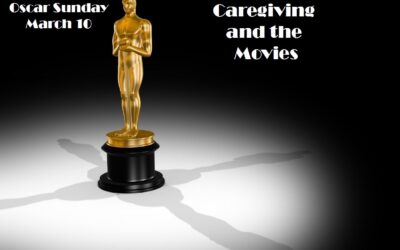

Ayurvedic Treatment has been a game-changer for managing my MS symptoms. Since incorporating it into my routine, I’ve experienced reduced pain, increased energy levels, no more blurry vision and a noticeable improvement in my overall well-being I usually get the Ayurveda from natural herbs centre. com on google search, they guided me through the journey of getting better. I know I’ll get negative comments but I can vouch for this Ayurvedic treatments but you still need to decide what works best for you. Sending prayers